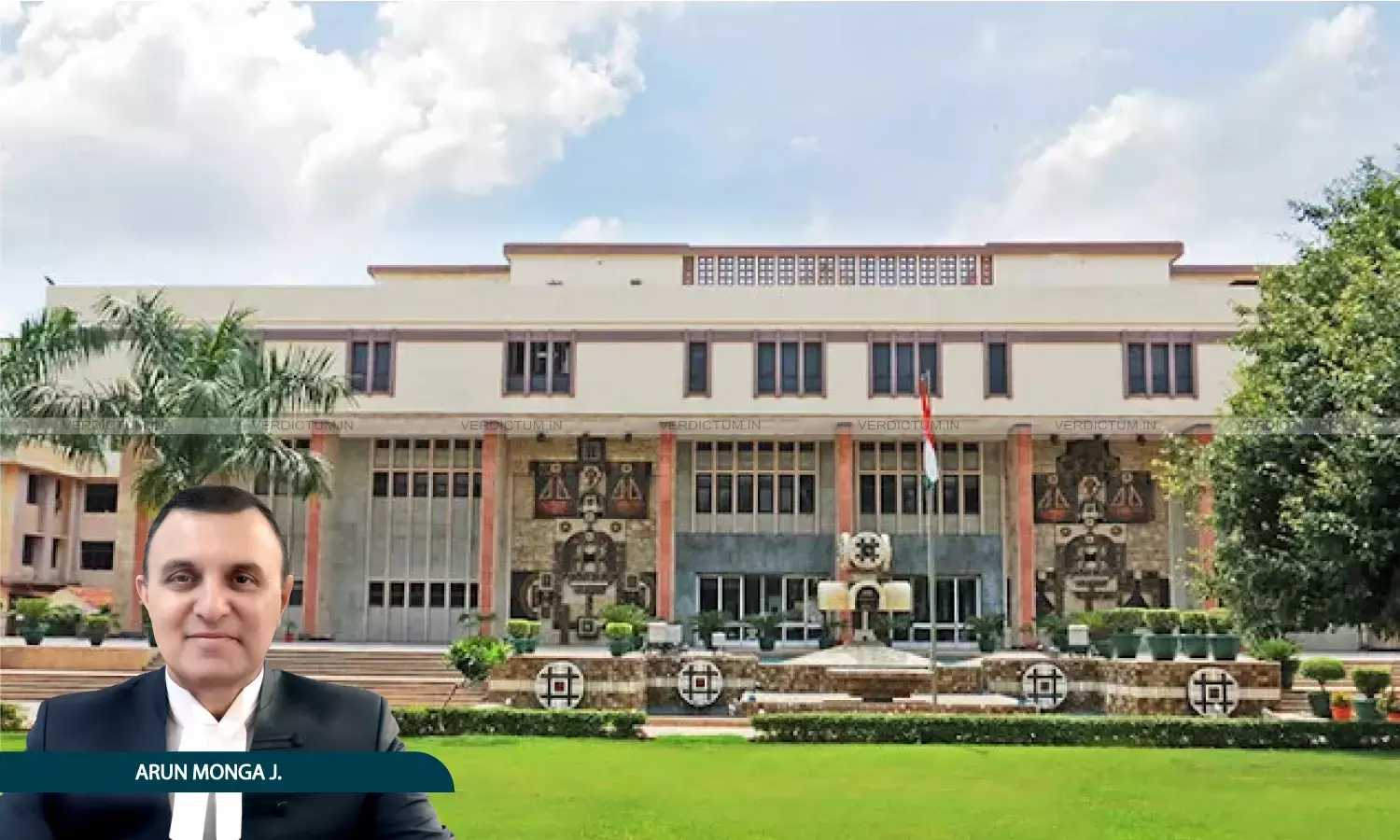Delhi High Court Says Law Required Balancing Maternal Autonomy And Rights Of Viable Foetus In Abortion Jurisprudence
The Delhi High Court observed that until such clarity is provided, courts will continue to tread the delicate path.

Justice Arun Monga, Delhi High Court
The Delhi High Court has suggested that lawmakers should look into providing for law for protecting rights of viable foetus born alive during abortion, so as to create a balance with maternal autonomy.
The Court was considering a Writ Petition filed by a 15 years old, a minor girl, through her mother seeking permission to terminate her pregnancy of 27 weeks.
The Bench of Justice Arun Monga observed, "What is the position in law as regards the rights of a viable foetus which, if delivered, may be born alive? This issue warrants attention. While constitutional courts have, in the absence of legislative clarity, sought to balance competing interests through case-specific adjudication. However, the absence of a clear statutory framework leaves the matter unsettled......Judicial discretion, however sensitively exercised, cannot be a substitute for legislative determination. The law must clearly delineate the balance between maternal autonomy and foetal rights at the stage of viability..."
The Petitioner was represented by Advocate Anwesh Madhukar, while the Respondent was represented by Additional Standing Counsel Amol Sinha.
The Court was of the opinion that the mental and physical well-being of the victim, who has already endured cruelty at the hands of the perpetrators, must outweigh the mere probability of the foetus being born alive, which the medical experts themselves have noted as uncertain.
".....What is certain is the plight of the victim, a minor child who has conceived under the agony of fate. She requires greater protection at present than the uncertain possibility of preserving a foetus that may not even survive. It is also noted that medical terminations between 24 to 28 weeks of gestation ordinarily result in the foetus being stillborn, though exceptions may exist....", the Court observed.
Considering the age of the Petitioner and the mental and physical trauma inflicted upon her by the heinous act of sexual assault, the Court was of the opinion that continuation of the pregnancy would permanently scar her psyche and cause grave and irreparable harm to her physical and mental health.
"While it is true that the Medical Termination of Pregnancy Act, 1971, prescribes 24 weeks as the statutory limit for termination, it is equally well established that constitutional courts, in exercise of their extraordinary jurisdiction under Article 226 of the Constitution of India, may in exceptional circumstances permit termination beyond the statutory limit. The present case, in the opinion of this Court, clearly falls within such category", the Court ruled.
Before parting, the Court considered the collateral yet recurring issue, i.e. what are the rights of the foetus once it attains viability?
It pointed out that the Medical Termination of Pregnancy Act is silent on it, and with the increasing number of cases seeking termination of pregnancy beyond the statutory limit, the question of foetal viability has assumed considerable importance in abortion jurisprudence. The Court noted that the State cannot, consistent with constitutional guarantees, compel a woman to undergo physical or mental trauma solely for the preservation of unborn life as any such compulsion would, in effect, render her fundamental rights nugatory and subordinate to rigid biological benchmarks.
"In matters of such type, as the one in hand, this Court has consistently relied upon the recommendations of duly constituted Medical Boards in such matters, more so when the pregnancy ha crossed the twenty-four-week mark. The role of these expert bodies in assessing the risks to the woman‟s life and health, and in determining the severity of foetal abnormalities, whether fatal or otherwise, cannot be overstated. Their opinions have provided the necessary medical foundation for judicial discretion, ensuring that the decision-making process is informed by expertise rather than constrained by statutory silence.... From the judicial precedents, it is discernible that where the life or health of the woman is endangered, her rights are paramount. Where the foetus suffers from grave or life-incompatible abnormalities, courts have permitted termination even up to twentyeight or thirty-two weeks. Conversely, where the foetus is viable and healthy, and termination is sought on non-medical grounds, courts have declined relief, being mindful of the rights of a foetus capable of independent survival....", the Court observed.
It emphasized that the larger question is as to what is the position in law as regards the rights of a viable foetus which, if delivered, may be born alive, and the same warrants attention. Therefore, delineate the balance between maternal autonomy and foetal rights at the stage of viability.
"No doubt, until such clarity is provided, courts will continue to tread this delicate path; but the ultimate responsibility to settle the matter rests with the law-making authority. It is time that the lawmakers of the country address this question in no uncertain terms", the Court said.
The Petition was accordingly allowed.
Cause Title: XX vs. State Govt. of NCT of Delhi & Anr. (2025:DHC:8031)
Appearances:
Petitioner- Advocate Anwesh Madhukar, Advocate Pranjal Shekhar, Advocate Ishat Singh and Advocate Prachi Niwan,
Respondent- Additional Standing Counsel Amol Sinha
Click here to read/ download Order

